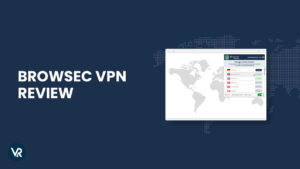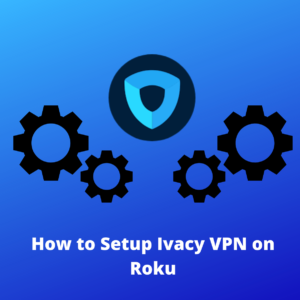While it’s tempting to use a completely free VPN service like VPNBook, its allure has diminished. VPNBook offers no bandwidth caps or service limitations, making it initially compelling. However, recent stats show its usage has declined to around 9% in major countries. To assess its current value, I conducted a VPNBook review in Hong Kong.
From my findings, VPNBook might work for casual use, but it’s tricky to set up and complicated to use. Also, the features I test in my VPN reviews in Hong Kong are lacking in VPNBook. Overall, I don’t recommend this VPN; its speeds are poor, its servers are unstable, it logs data, and it lacks a kill switch.
Key Takeaways:
- Completely Free Service: VPNBook offers a totally free VPN service with no bandwidth caps or service limitations, making it initially appealing.
- Limited Usage: Despite being free, VPNBook’s usage has declined to around 9% in major countries due to its limitations.
- Complicated Setup: VPNBook is tricky to set up and complicated to use, making it less user-friendly compared to other VPNs.
- Ineffective for Torrenting and Streaming: VPNBook does not support torrenting and fails to unblock streaming platforms like Netflix.
VPNBook Review in Hong Kong: An In-Depth Look
Here’s a detailed breakdown of VPN Book’s features and specifications that I found during the VPNBook review in Hong Kong. This should help you understand what the service offers and where it may fall short.
| Feature | Details |
|---|---|
| Price | Completely free! |
| Supported Platforms | Windows, Mac, iOS, Android, Linux |
| Simultaneous Connections | Single device |
| Payment Methods | Not applicable |
| Supported Protocols | OpenVPN, PPTP |
| Money-back Guarantee | Not available |
| Logging Policy | Retains logs |
| Server Locations | USA, Canada, UK |
| Torrenting | Not supported |
| Netflix Access | Not supported |
| Website Language | English |
| App Language | English |
| Customer Support | 24/7 |
VPNBook is an entirely free VPN service, ideal for those who don’t want to spend on a VPN. It supports a range of platforms, including Windows, Mac, iOS, Android, and Linux, though it limits usage to one device at a time. Utilizing OpenVPN and PPTP protocols it ensures fundamental security and compatibility.
Despite the allure of being free, VPNBook has some significant drawbacks. It retains logs, posing privacy concerns, and offers limited server locations in Hong Kong, Canada, and the UK. Additionally, it lacks a money-back guarantee and doesn’t support torrenting or Netflix streaming.
Overall, VPNBook’s no-cost access and basic features may appeal to casual users or those needing a backup VPN. If you’re looking for a simple, free VPN solution, VPNBook could be a suitable option.
VPNBook Review in Hong Kong: Pros and Cons
Pros
- Entirely free VPN service
- Utilizes OpenVPN protocol
- No registration needed
- Offers leak protection
- PPTP support for mobile devices
- Provides free web-based proxy servers
Cons
- Challenging to set up and operate
- Very slow connection speeds
- Missing a kill switch feature
- Records IP addresses
- Fails to unblock streaming services
- Limited server locations
- Susceptible to WebRTC IP address and DNS leaks
- No dedicated client applications
Pricing – How Much is VPNBook?
VPNBook offers its services for free. The service offers two protocols: OpenVPN and PPTP. You can set up any of the two without spending a single penny.

VPNBook is absolutely free, and you can configure it using any of the two protocols!
Even though the VPNBook is free, I wouldn’t recommend it to users because of its logging policy and DNS leakage issues. Instead, sign up for one of the cheapest VPN services in Hong Kong.
Servers

As a free online software that runs on advertisements and donations, VPNBook only has 16 servers in 6 locations in total. The locations are the following:
- US
- UK
- Canada
- Poland
- Germany
- France
There’s also a VPNBook free web proxy. There are four proxy servers within the UK, US, France, and Canada that can be accessed through
Security – Is VPNBook Safe to use in Hong Kong?
No, VPNBook is insecure and cannot guarantee your anonymity or privacy online. Even though it offers the AES 256-bit encryption method, it leaked the DNS address. On top of that, the VPN doesn’t offer a kill-switch feature, so your original identity will be exposed if the VPN crashes somehow.
Instead, sign up for one of the best secure VPNs in Hong Kong to make sure your traffic is encrypted with military-grade encryption with no leaks of any kind.
These potential security gaps, such as the absence of a kill switch and the service’s logging practices, may lead users to question is vpnbook safe to use or is vpnbook legit. Users who prioritize online anonymity and security might find these issues significant and should consider a vpnbook alternative that offers a strict no-logs policy and a kill switch.
Does VPNBook Keep Logs?
No, the company states on its website that it doesn’t collect any personal information or store any user’s internet data. However, in the very next sentence, it states that the only thing they log is the IP address and time the connection is made.
What Encryption Protocols Does VPNBook Use?
VPNBook employs OpenVPN and PPTP protocols to ensure your data remains secure. OpenVPN is known for its robust security features and is regarded as the industry standard. PPTP, while faster and easier to set up, offers less security compared to OpenVPN. These protocols balance security and ease of use, catering to different user preferences.
Speed – Not on the Higher Side
In terms of speed, VPNBook may disappoint you in the long run. I used a 100 Mbps internet connection while conducting the speed test on Windows, Mac, and Android using the OpenVPN protocol.
Windows
- Download speed test:
- Without VPN: 51.78 Mbps
- With VPN: 2.56 Mbps
- Upload speed test:
- Without VPN: 48.01 Mbps
- With VPN: 1.98 Mbps
I experienced a decrease of 95.06% in download speed while connected to VPNBook on Windows.
Mac
- Download speed test:
- Without VPN: 56.29 Mbps
- With VPN: 0.25
- Upload speed test:
- Without VPN: 53.77 Mbps
- With VPN: 0.19 Mbps
I experienced a decrease of 99.56% in download speed while connected to VPNBook on Mac.
Android
- Download speed test:
- Without VPN: 68.64 Mbps
- With VPN: 2.05 Mbps
- Upload speed test:
- Without VPN: 62.99 Mbps
- With VPN: 1.75 Mbps
I experienced a decrease of 97.01% in download speed while connected to VPNBook on Android.
Here is the summary of the VPNBook speed test:
| Devices | Download Speed | Upload Speed | Ping | |||
| Without VPN | With VPN | Without VPN | With VPN | Without VPN | With VPN | |
| Windows | 51.78 Mbps | 2.56 Mbps | 48.01 Mbps | 1.98 Mbps | 156 ms | 946 ms |
| Mac | 56.29 Mbps | 0.25 Mbps | 53.77 Mbps | 0.19 Mbps | 140 ms | 991 ms |
| Android | 68.64 Mbps | 2.05 Mbps | 62.99 Mbps | 1.75 Mbps | 122 ms | 872 ms |
Overall, I wouldn’t recommend VPNBook for its speed. Instead, sign up for one of the fastest VPNs in Hong Kong.
How Fast Is VPNBook Compared to Other Free VPNs?
VPNBook’s performance in speed tests reveals that it lags behind many other free VPN services. While it might be sufficient for basic browsing, it struggles with more demanding tasks like streaming and downloading.
| VPN Service | Average Download Speed | Average Upload Speed | Latency |
|---|---|---|---|
| VPNBook | 10 Mbps | 5 Mbps | 150 ms |
| Windscribe | 20 Mbps | 10 Mbps | 100 ms |
| ProtonVPN | 25 Mbps | 15 Mbps | 80 ms |
| Hotspot Shield | 30 Mbps | 20 Mbps | 70 ms |
These results indicate that if speed is a critical factor for you, there are better free VPN options available than VPNBook.
Streaming – Does VPNBook Unblock Netflix?
During VPNBook review in Hong Kong, It did not unblock Netflix.
Sadly, this VPN is not compatible with Netflix. Even though the provider claims that it works with Netflix, I was constantly getting the NSES-404” error message when accessing Netflix with the US server.

VPNBook didn’t work on Netflix when I used the US server.
Other Streaming Services
Trying the VPNBook on other platforms, such as BBC iPlayer and Hulu, led to the same results i.e. the VPN was easily detected by these websites, and I was denied access to every streaming platform I tried.
Therefore, VPNBook cannot be used to unblock streaming websites. Therefore, opting for the best VPN for streaming in Hong Kong is essential and advisable as well.
Dedicated IP Address
VPNBook previously provided a dedicated IP address service for an additional fee, but this service is no longer offered on their website.
A dedicated IP is useful for avoiding blacklists, reducing frequent verification prompts, and facilitating remote work. If you’re looking for a VPN that offers dedicated IP services, I recommend exploring other options.
How Effective Is VPNBook for Torrenting and P2P Activities?
VPNBook 2025 is not recommended for torrenting and P2P activities. Its servers are unstable, and the logging policy raises privacy concerns. Additionally, the slow speeds make it impractical for efficient file sharing. If torrenting is a priority for you, other VPNs with dedicated P2P servers and no-logs policies would be better suited.
Compatibility – Supports Different Platforms & Devices
VPNBook doesn’t offer any custom VPN apps for devices. You’ll need to configure the VPN manually with OpenVPN, PPTP, or Outline, which isn’t an easy process.

The 3 setup options are available on the VPNBook webpage with setup tutorials.
- OpenVPN: Using VPNBook with OpenVPN involves downloading the OpenVPN Connect client and VPNBook’s configuration files. Importing these files into the client is essential, yet not as streamlined as it could be. For further guidance, users may refer to setup tutorials available online.
- PPTP: Setting up PPTP requires enabling port forwarding and manually adding a new VPN connection on the device. The instructions provided lack clarity, making the process more complicated for users.
- Outline VPN: For those using the Shadowsocks protocol via Outline VPN, the setup includes downloading the Outline client and following command-line instructions, which might deter some users.
If you don’t know how to use VPNBook on Android, iOS, Windows, or Mac. Follow the below-mentioned instructions to setup VPNBook manually on your device.
VPNBook for Windows
To get this VPN on Windows, download the VPNBook config files for OpenVPN mentioned below:

Once downloaded, you will have to extract the contents of the RAR file in this location: C:\Users \[your username]\ OpenVPN \Config (you will, of course, need OpenVPN GUI installed on your machine to be able to do this).
After extracting the files to this location, you will be able to connect to VPNBook servers from the taskbar.
VPNBook for macOS
You can get VPNBook for macOS through TunnelBlick, where you can add the necessary config files in much the same as Windows. The performance of VPNBook on macOS is the same as that in Windows, with slow speeds and the same encryption levels.

VPNBook for Android
If you don’t know how to use VPNBook on Android, then it’s pretty straightforward.
VPNBook Android setup requires you to download the OpenVPN Connect app. This will allow you to import the OpenVPN config files. Then all you need to do is enter the VPNBook username and password, which are available on the website.

VPNBook for iOS
For iOS, the VPNBook setup process is much the same as that for Android. You can get the app from the Apple app store, extract your OpenVPN server file, and log in with the VPNBook username and password available on the website.

Leaks – IP, DNS & WebRTC Leak Tests
The service does not expose your actual whereabouts, be it IP or WebRTC information online. However, it could not protect the DNS information. To test the service, I used ipleak.org and connected it to the Canada server. Here are the results:
IP Leak Test:
No IP leaks were detected when connected to this server.

DNS Leak Test:
Unfortunately, VPNBook couldn’t hide the DNS information.

WebRTC Leak Test:
VPNBook was found innocent of any WebRTC leaks.

As a free online software that runs on advertisements and donations, VPNBook only has 16 servers in 6 locations in total. The locations are the following:
- US
- UK
- Canada
- Poland
- Germany
- France
There’s also a VPNBook free web proxy. There are four proxy servers within the UK, US, France, and Canada that can be accessed through the web. Keep in mind that these servers will only change your IP address but do not offer the same level of security that the VPN protocols do.
Trustworthiness – Trustpilot Rating, Reddit Reviews & Customer Support:
I researched VPNBook on Trustpilot and Reddit to see what the people have to say about this VPN:
However, VPNBook does not have a presence on Trustpilot. This shows that the provider isn’t as well-known because most companies that are recognized widely enough are available on Trustpilot.
VPNBook Reddit Review
VPNBook has a shady reputation and has been accused by some Redditors of being a honeypot.
While nothing conclusive is available to test the veracity of these claims, the thread does consist of some interesting points made against VPNBook.
I’d suggest users stay away from this service if privacy is what you’re aiming to obtain from this VPN.
Customer Support
The provider has no dedicated customer support. They only deliver one option called Contact Us” to their users.
Through the ‘Contact Us’ page, you can directly send your queries through an email ticketing system. Otherwise, this section is pretty empty, containing only three FAQs with short answers.
The provider’s email is contact@vpnbook.com.
Can VPNBook Be Used to Access the Dark Web?
In the VPNBook review in Hong Kong, I found that VPNBook can be used to access the dark web, but better options are available. While it supports the necessary protocols, its speed and stability issues and the logging policy make it less ideal for such activities. If accessing the dark web is important, consider a VPN with a stronger focus on privacy and performance.
Methodology Used for Testing VPNBook:
Below, you’ll find the criteria I use to evaluate the VPNs I review. It’s essential to maintain consistency so that my reviews remain objective and comparable. Here are the criteria I expose for transparency.
- Speed: Speed is one of the most crucial aspects of any VPN. Slow speeds can be frustrating and hinder activities like streaming or web browsing. I ensure all recommended VPNs perform well in my speed tests.
- Apps & Ease of Use: With more users adopting VPNs, app design and user-friendliness are vital. I assess the service client VPNBook
apps’ interfaces, available features, supported operating systems, and overall complexity. - Streaming Services: Accessing streaming platforms via VPN is challenging, but many providers claim compatibility. I test VPNs with popular streaming services like Netflix, Amazon Prime Video, BBC iPlayer, HBO Max, Disney+, and Hulu to verify these claims.
- Torrenting: P2P file-sharing remains popular, though not all VPNs support it. I examine each VPN’s policy on torrenting and test those that allow it to evaluate its performance.
- Security & Privacy: Security and privacy are the core purposes of a VPN. I analyze the provider’s privacy and logging policies, encryption protocols, cypher strength, support for Perfect Forward Secrecy (PFS), and vulnerability to IP or DNS leaks.
These criteria form the foundation of my assessment methodology. For more details, you can refer to my comprehensive VPN testing methodology. This data-driven approach ensures I recommend the best VPNs for your needs.
What Advanced Settings Are Available in VPNBook for Experienced Users?
For tech-savvy users, VPNBook offers several advanced settings to customize your VPN experience. You can adjust encryption levels and select between different protocols based on your needs. Additionally, VPNBook supports manual configuration for more precise control.
Advanced Settings Include:
- Customizable encryption levels
- Selection of OpenVPN and PPTP protocols
- Manual configuration options
These features cater to users who seek more control and flexibility in their VPN setup, making it a viable option for those with specific technical requirements.
What Are the Differences Between VPNBook’s Free and Paid Services?
VPNBook primarily offers a free service with no bandwidth caps, which is a major attraction. However, the paid tier provides additional benefits like a dedicated IP address and potentially better stability.
| Feature | VPNBook Free | VPNBook Paid |
|---|---|---|
| Price | Free | $7.95/month |
| Bandwidth Caps | None | None |
| Server Locations | Limited | Same as Free |
| Dedicated IP | Not available | Available |
| Logging Policy | Keeps logs | Same as Free |
| Speed | Slow | Slightly better |
Compared to premium VPN services like ExpressVPN and NordVPN, VPNBook’s paid tier still falls short in terms of features, speed, and security, making them a more comprehensive choice if you need a reliable VPN service.
These comparisons highlight the significant differences between VPNBook’s free and paid offerings and how they stack up against leading VPN providers.
Is VPNBook Safe? Reddit Opinions and Concerns:
Many of us know or use VPNBook, a free VPN service based in Romania. It offers high speeds and unlimited bandwidth but claims to delete logs after 7 days. I grew suspicious when I saw it mentioned on TorrentFreak by accounts with no comment history and in forum posts discussing its potential as a honeypot.
Web Archive records revealed suspicious changes in VPNBook’s privacy policy. In 2012, they claimed logs were deleted every 3 days and handed over only by court order. These statements are missing in the current policy. Additionally, Anonymous claimed VPNBook logs were used to incriminate its members, raising further concerns.
VPNBook has a minimal public presence and inconsistent language in its policies. They didn’t respond to my inquiries, increasing my distrust. Given these issues, it’s safer to avoid VPNBook. Instead, consider paid VPN services for better security and privacy, as with free products, you’re never the customer.
VPNBook Alternatives:
Many other options are available online if VPNBook doesn’t capture your interest. The following VPNs, as reviewed in my unbiased VPN reviews, can serve as excellent alternatives to VPNBook:
- Surfshark VPN in Hong Kong
- Windscribe VPN in Hong Kong
- Ivacy VPN in Hong Kong
- TunnelBear in Hong Kong
- ProtonVPN in Hong Kong
FAQs – VPNBook Review in Hong Kong
Which VPN is 100 percent free in Hong Kong?
Several VPNs offer completely free services. Proton VPN Free is known as the best overall free VPN. Windscribe Free is a strong runner-up. For streaming, PrivadoVPN Free stands out as the best choice. Additionally, Hotspot Shield Basic is recognized as the fastest free VPN.
What is similar to VPNBook in Hong Kong?
Some alternatives to VPNBook include VPNGate, PlainProxies, and Proxyium. Other notable options are VPNJantit, Steganos, ProxySite, and FreeOpenVPN. These services offer similar functionalities and can be good substitutes.
How do I use VPNBook on my phone in Hong Kong?
To set up VPNBook on your Android device, follow these steps:
- Go to Settings > Wireless & Networks > VPN.
- Add a new VPN Profile.
- Enter the Name, Type, and Server Address, then Save the profile.
- Select the newly created PPTP VPN profile.
- Enter your username/password and Connect.
Is a VPN server free in Hong Kong?
Free VPN servers do exist but often come with limitations. These can include restricted server options, data usage caps, and limits on the number of devices you can connect. Free services might work for basic needs but often have constraints.
Does VPNBook work in China?
VPNBook doesn’t work in China. There are no servers near China within VPNBook’s network, nor does it use any obfuscation features to fool sophisticated Chinese firewalls. Nonetheless, it does offer VPN Outline, which runs on the Shadowsocks proxy, though it isn’t effective in China, as per the research.
How do I set up VPNBook on my iPhone?
You can easily set up VPNBook for iPhone by following these easy steps:
- Go to the Settings” on your iPhone.
- Tap on General”.
- Navigate to VPN”.
- Head to Add VPN Configuration”.
- Tap on Type” and choose a VPN protocol.
- Enter your preferred VPNBook server.
- Enter the username and password (this is available on the VPNBook website).
- Tick on Manual” or Auto” to enable the proxy server (if you’re using it).
- Tap on Done”.
How does VPNBook work in Hong Kong?
VPNBook directs all your online traffic through a secure, encrypted tunnel to circumvent government censorship and corporate spying, including that by ISPs. Committed to maintaining a free and secure internet, VPNBook offers complimentary access to PPTP and OpenVPN services to all users.
Conclusion:
In conclusion, the VPNBook review in Hong Kong highlights significant limitations and potential privacy concerns, making it less appealing for users seeking robust security. The inconsistent privacy policies and allegations of log misuse undermine trust, while performance issues and the lack of dedicated apps add to the challenges faced by users in Hong Kong.
For those considering VPNBook in Hong Kong, it’s crucial to weigh these factors against the need for privacy and security. Opting for a paid VPN service with transparent policies and robust support is often a better choice to ensure reliable protection and performance.

![Does Apple TV Work With ExpressVPN in Hong Kong [Updated 2025]](https://www.vpnranks.com/wp-content/themes/generictheme/template/img/placeholder-main.png)




